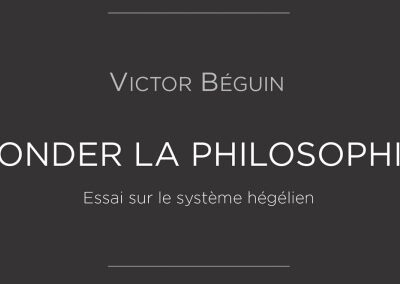A contextualist conception of philosophy of mind
Sofia Miguens – University of Porto – Portugal
Actes de la journée organisée par Raphaël Ehrsam, le 4 juillet 2013.
1. Concepts and minds
“Let us suppose I say to Ulysse: “I will show you a skyscraper” and I show him the Reliance Building. He tells me “No, that is not a skyscraper. It‘s shabby, and plus it’s only fourteen storeys high”. He is obviously thinking of the imperial monsters of Michigan Avenue”.[1]
“One might say, in some sense, that Hector, who confronts Achilles and so is heading for a certain death, is an example of courage. One might say, in some (other?) sense, that Andromache who accepts his leaving and suffers it, keeping her strength to protect their son, is another. Now, a friend of instantiation would say that, in Hector, there is an abstract particular (a particular moral property by the way) that is an instance of courage, and that, in Andromache there is another abstract particular that is another instance of courage. Of course, the abstract particular that makes Hector courageous (let us call it Hector’s bravery) is not the same as the abstract particular that makes Andromache courageous (let’s call it Andromache’s bravery). However, both of them are instances of courage, as both of them are exactly a particular embodiment of the very same thing: courage.”[2]
Concepts are central to philosophy of mind: after all, whatever else we may think of minds, they are classifying, or categorizing, devices of what there is, and taking it that such classification or categorization is done via concepts is a natural way to view things. A view of concepts (i.e. a way of conceiving of the nature and workings of concepts) is thus supposed to account for ways things in the world count as similar and different for a mind, e.g. for a human subject, such as, in the examples above, being or not being a skyscrapper, being or not being courageous. My main purpose in this article is to take Jocelyn Benoist’s recent work on concepts and on the conceptual/non-conceptual distinction as a guide to understanding his view of what philosophy of mind should be. Benoist thinks of his view of philosophy of mind as a contextualist view; I believe following his analyses of concepts and the main idea according to which concepts cannot be taken to be abstract entities in a mental repository, and thus cut off from the world, we may develop a good grasp of what such contextualism might involve. My background assumption is that a conception of concepts as abstract entities in a mental repository may very well survive, and did in fact survive, all attacks to the classic necessary-and-sufficient-conditions view which have taken place in the last half century in philosophy, psychology and cognitive science. One may very well reject the idea that concepts are sets of necessary and sufficient conditions, or definitions, and still be very confortable with the idea that concepts are mental representations, only prototypes (Rosch 1978), or atoms (Fodor 1998), or proxytypes (Prinz 2002)[3]. This is one more reason why Benoist’s proposals about concepts and prospects for philosophy of mind strike me as so important.
2. Lists of necessary and sufficient conditions versus occurrings
Approaches to concepts are often presented, especially in the context of cognitive science, under the guise of alternatives to the so called classic necessary-and- suficiente-conditions view. According to such view things in the world, as it were, ‘respond’ to subject’s concepts by satisfying, or not satisfying, such necessary and sufficient conditions. Given that necessary and sufficient conditions are one way to get definitions, G. Murphy calls this the definitional approach:
«There are two aspects to a definition that these items illustrate. The first we can call necessity.The parts of the definition must be in the entity, or else it is not a member of the category. So, if a character did not have the check-mark radical, it would not be an oo[4]. Similarly, if something doesn’t have a distinctive attribute of chairs, it is not a chair.The second aspect we can call sufficiency. If something has all the parts mentioned in the definition, then it must be a member of the category. So, anything having that radical in Hull’s experiment would be an oo, regardless of what other properties it had. Note that it is not enough to have one or two of the parts mentioned in the definition—the item must have all of them: the parts of the definition are ‘‘jointly sufficient’’ to guarantee category membership. So, it wouldn’t be enough for something to be as big as a cow and be from Africa to be a wilde-beest[5]; the item must also be an animal, with four legs and horns, if those things are included in our definition» (Murphy 2002, 12-13).
In a typical textbook context such as the one from which the quotation above was extracted, we are usually then presented, in contrast with the definitional approach, with (supposedly) less conventional, non-classical ways of thinking of concepts, such as the prototype theory, the theory-theory, or more recently, fodorian atomism, according to which categories in the world are mentally represented, respectivelly, by prototypes, mini-theories, or atoms without complexity or structure which carry infomation about the environment[6]. All of these are alternatives to the classic necessary-and-sufficient-conditions view, which try to come to terms with the apparent lack of the clear boundaries required by the classic view in real-world categories. Much is certainly valuable in such attempts, and the clash between theories certainly is an illuminating way of being introduced to debates on concepts – yet here I want to focus on something else. I want to point out the fact that although for a long time now necessary-and-suficient-conditions views of concepts have been opposed, the idea that concepts are mental representations, i.e. discrete, self-standing, internal, abstract mental entities, whether they be sets of necessary conditions, prototypes, atoms or proxytypes may remain untouched. The idea that a mind is something like a repository of such representations, by means of which minds somehow access the world, thereby ‘classifying’ and conceptually organizing it, has a very strong appeal, and in fact one may regard it as a crucial component of representationalism in the philosophy of mind[7]. Notice that abstract mental entities thus conceived are, as it were, cut off from the world, i.e. purely mental, purely internal; they keep things in the world at a distance from the mind, thus making the idea natural that the world has to be accessed by means of such, as it were, internal templates. The idea that any such ‘bracketing of the world’ may be doing a lot of work in a conception of concepts may seem like a caricature; yet one might also regard such bracketing as a deeply settled intuition lying at the heart of much contemporary philosophy of mind.
But need one indeed think of concepts as abstract mental representations, ‘furnishing’[8] the internal realm of the mind? One alternative to thinking of concepts as abstract entities in an internal mental repository by means of which minds access the world is to take the idea seriously that one can never separate concepts’ being the concepts they are from their particular embodiedness, and thus their occurrings and apllications in the mental lives of thinkers. This is an idea Benoist takes very seriously, and in what follows I search for its roots and implications. As we will see, Benoist’ rejection of the view of concepts as abstract mental entities cut off from the world comes from surprisingly different quarters of contemporary philosophy, namely husserlian phenomenology and contextualism in the philosophy of language[9].
3. Flexibility and the given
Benoist’s main thesis regarding concepts is what he calls calls the flexibility (flexibilité) of concepts – our concepts, such as ‘skyscraper’ or ‘courage’ in the examples above, are flexible. In order to spell out what Benoist means by flexibility, I will use a variety of sources, at the center of which is Concepts, his 2010 book on concepts. I will also consider his article, “A Plea for Examples – phenomenology as sensitive ontology” as well as a commentary on John McDowell’s Mind and World, titled “Openess and Unboundedness”[10].
I should start by saying that one very important concern of Benoist in his approach to concepts is how one conceives of what is given. His idea is that no view of concepts is independent of more general philosophical concerns regarding views of the given, or of givenness[11]. It is in fact particularly important, in order to understand his view of concepts, to follow Benoist’s misgivings about conceptions of the given, of givenness, or of ‘donation’. Some such misgivings are focused on phenomenology, and, in particular on what he regards as ‘over-intentional’ conceptions of givenness (as if ‘things themselves had a language’) which were developed in post-husserlian phenomenology, some others (as expressed in his criticism of McDowell) are directed elsewhere, such as, e.g., at the way givenness is conceived of, in Mind and World (1994). For present purposes, one should keep in mind that in Mind and World givenness is being discussed in the wake of the critique of the Myth of the Given, and that the ideas of openness and unboundedness are the ‘pillars’ around which it is to be conceived anew. These two central theses of Mind and World are formulated against quinean and davidsonian views of experience as (proximal or distal) stimulation: McDowell’s idea is that (perceptual) experience is openness (to the world) and that the conceptual is unbounded (i.e. there are no limits to that which can be conceptualized)[12].
It is thus with flexibility on the one hand, and a conception of what is given[13] on the other that a view of concepts arises in Benoist’s work. And it arises alongside a conception of philosophy of mind: philosophy of mind should be, to use Benoist’s own term, contextualist—this is a main agenda of the 2010 book, where such contextualism is exercised in a theory of concepts. So in the following I will be going after what is maybe the central idea in Concepts: the idea that a contextualist philosophy of mind is needed, and still needs to be developed, especially since contextualism, ‘even at its best’, as so far known, is practiced primarily in philosophy of language[14].
4. The logic of exemplification
I start by looking at what is going on in Benoist’s article “A Plea for Examples – phenomenology as sensitive ontology”. What is of direct interest there for Benoist’s view of concepts is what he calls la logique de l’exemplification [the logic of exemplification], and the way it was explored in phenomenology. Beyond the historical analyses (namely of very early Husserl on the logic and ontology of abstraction) Benoist’s main concern in the article is in articulating what he calls the phenomenological constraint on concepts. This is a constraint of embodiedness of concepts in concrete cases. Skipping many details we have the following: the focus of phenomenology on the concreteness of what is given made it the case that the idea that concepts should not be taken to be abstract presentations, cut off from the world, came very early (Benoist’s reference is a 1893 manuscript by Husserl, which was written as preparation for his Psychological studies on the elements of logic, of 1894[15]). The main reason concepts cannot be taken to be abstract presentations, disconnected from the world, is that presence is not by itself conceptual; something else besides presence is needed to explain a concept as a concept, and that is not so much abstraction, but rather a particular cognitive take on what is given. The idea then is that in order for concepts to be the concepts they are, they have to be effective, i.e. they have to be in use for (fragments of) what is given. It is thus paradigmatic applications of concepts – i.e. examples – which determine concepts as the particular concepts they are. In “A Plea for Examples” Benoist’s concern is with how this phenomenological constraint, by directing attention to embodiment of concepts in concrete cases, may work as a constraint on ontological analysis (i.e. on what it is, what it should be, to engage in ontology). Yet he is also interested (as elsewhere whenever he is involved in developing a theory of concepts) in what he calls the way concepts work as norms.
From the view put forward within phenomenology, by Husserl himself, according to which concepts are not abstract presentations but are, rather, always effective, and thus exemplified, interesting analyses of the complexity of exemplification follow. Benoist goes after some of them – there is a passing reference to Husserl’s views on abstract particulars or tropes (one idea being that abstractness as such regards not so much concepts as concepts but the object-dependence of such abstract particulars), reference to connections between these views and a mereologic genesis of predication and an idea of what a predicate may be (a property referred to by a predicate being something like a formal part of an object, which could then be a part of any other object). Yet according to Benoist no matter how interesting an ontological story could be told here, and such stories have been told within both phenomenology and analytic philosophy, a proper reading of the phenomenological constraint on concepts should lead us down a different path. Thus, in “A Plea For Examples”, he extends the logic of exemplification, i.e. the phenomenological constraint initially formulated within phenomenology, in order to propose that a proper reading of such phenomenological constraint should make us realize that in trying to understand concepts, there is no leaving aside (what he calls) the effort of applying one’s concepts. In other words, there is no leaving aside thinkers actually thinking. Now, since applying one’s concepts always takes place in particular circumstances, part of the effort of applying concepts is the normative assessment of such circumstances. And if, says Benoist, we take this seriously, we will accept that there is never, there will never be, such a thing as perfect correspondence, i.e. concept-reality ‘exact’ match. Consider my initial examples (which are Benoist’s own examples): how are we to think of someone’s thinking of something as being a skyscraper or of someone as being courageous? First, Benoist’s idea is that such concepts, in their applications, do not reflect natural similarities – saying that they are norms means that they mesure as they are put to use. It is part and parcel of the flexibility of concepts that they can apply to A or to B in what we could call different ways – think of the example of the courage of Hector and the courage of Andromaca. Still, that Hector and Andromaca be differently courageous doesn’t mean that there are different concepts of courage – rather, it shows that what is at stake in applying concepts is not natural similarity but rather what counts as the same. It is not always the same thing, says Benoist, for an x to be F (for an A or a B to be a skyscraper, for C or D to be courageous). Also, what is important here is that this itself – that it is not always the same for an x to be F – is essential for (what he calls) determining F (a concept), i.e. making concepts be the specific concepts they are. There is thus no, as it were, world-independence, i.e. independence of applications, of concepts’ being the concepts they are. Finally, there is the fact that occasions for applying concepts keep coming up in the workings of minds, e.g. in the mental lives of humans – thus, determining a concept as the concept it is, is not only world-involving but also something which can never be fully settled prior to all apllications of it. Such open texture of empirical concepts Benoist calls, in Concepts, taking up a term of the Viennese philosopher Friedrich Waismann, Porosität, porosité (porosity)[16].
All this being said, it is clear that what Benoist calls the flexibility of concepts involves a certain circularity – such circularity is in fact marked by the very notion of exemplification: the idea is that in thinking of (the nature) of a concept as the concept it is, one should allow for the retroactive effect on (one’s) concepts of applying (one’s) concepts. In other words, this is not a circularity Benoist wishes to refuse, since he thinks one can never separate having a concept and being able to apply it, in the conditions described. Such ‘principle’ – i.e. that one can never separate having a concept and being able to apply it in the conditions described – is in fact a fundamental tenet of anti-representationalism[17].
To finish this first attempt at spelling out some of the aspects of the nature and workings of concepts according to Benoist, I want bring up one important remark of his, in chapter ‘Flexibilité’ of Concepts. While considering the open texture of empirical concepts and the retroactive effect on empirical concepts of applying one’s concepts, the involvement with occasions for applying concepts brings him close to contextualism in philosophy of language and to questions regarding context. And there he notices the following. Under a superficial understanding of contextualism, pitched as a philosophy of language doctrine, one may want to contextualize concepts as if they were words[18]. Yet if we do that, something is bound to go wrong: «Cela a un certain sens de s’enquérir de la signification des mots ‘hors contexte’. [e.g. we could think of ‘skyscraper’ and ‘courageous’ as English words occuring in different sentences]. Cela n’en a aucun de prétendre identifier une telle signification pour les concepts. Les concepts n’ont pas de contexte: il sont la prise en contexte.» [We may indeed ask about the meaning of a natural language word outside a particular context. Yet it does not make any sense to do the same thing for concepts: unlike words, concepts do not have a context – they are a take, by a mind, which takes place in a context]. Before, Benoist had just called concepts ‘la prise réalisée’ [an actual take, or a taking-as taking place][19]. Since it challenges the all too easy identification of concepts with meanings of natural language words, this lack of parallel makes for an important difficulty for a contextualist philosophy of mind.
5. John McDowell on the given: openness and unboundedness in Mind and World
Benoist tries to come to terms with aspects of the flexibilité of concepts not only in “A Plea for Examples” but also in ‘Opennness and Unboundedness”, a commentary on John McDowell, which I will consider next[20].
Benoist’s criticism of McDowell on openness and unboundedness – two very central concepts in Mind and World – takes up what we might call ‘the other side’ of a view of concepts, i.e. a view of what is given. Unless one is willing to think of the world as a neatly organized, fixed, set of categories with clear boundaries, which minds unproblematically reflect, and the fact that things are not such was one of the main criticisms addressed to the necessary and sufficient conditions view, one has to make sense of what is given as concepts are applied. “Openness and unboundedness” is a particularly interesting case of Benoist’s many misgivings along the years with notions of the given or givenness[21]. There he formulated such misgivings in terms of doubts about the way openness and unboundedness relate to each other in Mind and World, and also provides us with a way of seeing clearly why, and how, a conception of given, or givenness, is anything but indifferent for a view of concepts.
If we think of Mind and World, we may feel somewhat disconcerted with the way the heideggerian undertones of McDowell’s appeal to openness – the basic tenet of his philosophy of mind is that ‘experience is openness to the world’ – seem to clash with Hegelian unboundedness, i.e. the idea that mind is capable of coming to incorporate anything, nothing being beyond the reach of concepts. The obvious problem of a certain reading of unboundedness is that that which has no limits does not admit of anything beyond itself. It is, in Benoist’s terms, ‘as if mind had swallowed the world’. Yet mind ultimately engulfing the world, without a residue, may not be what one wants in conceiving of how what is given us is conceptualizable, and conceptualized, which is, after all, what McDowell is interested in explaining. McDowell himself acknowledges the problem, and thus strongly insists on what he calls ‘the external dimension’ of his view[22], i.e. on the world being external to the exercizes of spontaneity. He takes the deliverances of sensibility[23] to guarantee such external dimension. In other words, he believes that his proposal is compatible with there being intake from an external world, even if nothing taken in is external to the space of concepts. Benoist’s illuminating question here is the following: isn’t McDowell, by saying that ‘one can receive only what can be one’s own’ (also Benoist’ own terms), doing things as if openness coincided with unboundedness? Doesn’t Mind and World openness simply coincide with unboundedness? Benoist is led to ask the question because he wants a main point of his view of concepts to come up here: to his mind, the effort of applying one’s concepts pressuposes something which is not conceptual, and there are reasons to doubt that Mind and World unboundedness allows for that. Thus, Mind and World unboundedness leads us the wrong way in thinking of ‘the conceptual’[24], as it leads us to think that openness and unboundedness do coincide – for Benoist, thinking that there is openness inside the space of the conceptual only, i.e. that mind is open to the world within the limits (though they may be unbounded) of the conceptual, as McDowell does, is not the right way to think of mind-world relations.
Yet Benoist thinks that McDowell, in particular in his early approaches to singular reference and singular thought in articles such as “On the Sense and Reference of a Proper Name” (McDowell 1998a); “Singular Thoughts and the Extent of Inner Space” (McDowell 1998b) and also in Mind and World, where he deals with indexicality[25], has better things to say here – in fact, Benoist thinks that in all the places mentioned McDowell is putting forward a ‘brilliant analysis of the very notion of a concept’ and a theory of how we use concepts that goes exactly the right way. In all those places McDowell is defending that concepts are not separated from the world, standing on their own, as it were, abstract mental objects ‘inside the inner space of minds’. The outcome of the analysis is that there is no such thing as existentially non-commited and thus de-contextualized concepts. In dealing with singular reference, singular thought and indexicality, McDowell is in fact spelling out the way concepts are rooted in engagement with reality. That, according to Benoist, is a general feature of concepts. In other words, in such places McDowell is himself proposing a flexibility theory of concepts. Yet – and that is the important point here – the idea that concepts are rooted in engagement with reality can only be made good if carefully separated from bad understandings of unboundedness, such as McDowell’s own understanding in Mind and World. Such is, according to Benoist, the dificulty.
Benoist believes more things go wrong in Mind and World, having to do, namely, with how first and second nature are understood by McDowell, there and elsewhere. Yet what is, for him, ultimately important is that by saying that the space, the realm, of the conceptual is constitutively open to the world, as McDowell does with his view of ‘openness’, one is not by the same token commited to think that the world be itself conceptual. Benoist himself thinks that openness should be conceived as openness to what he calls the non-conceptual[26]. In Mind and World the view that openness can only be openness inside the space of the conceptual, within the limits of the conceptual, amounts to what Benoist sees as a unjustified internalization of openenness. Such reading of unboundedness is associated with, in Benoist’s words, ‘Une conception paresseuse du concept, comme si sa coaptation avec le ´réel allait de soi.”[27] [A lazy conception of concepts, as if their fitness to reality could simply be taken for granted].
Anyway, and this was my point in choosing two examples – “A Plea for Examples” and “Openness and Unboundedness” – of sources other than Concepts for exploring Benoist’s work on concepts, it is decisive for understanding prospects and principles for a contextualist philosophy of mind to understand the coming together of 1) la logique de l’exemplification, formulated in terms of the phenomenological constraint on concepts and its extension to the effort of applying one’s concepts, and 2) a view of what is given according to which openness and unboundedness do not coincide. Both are needed for doing away with what Benoist calls the rhetoric of access of mind to world which he thinks goes hand in hand with representationalism. The problem is that when we think of mind-world relations in terms of access of mind to the world, we are already assuming the realm of the mental to be somehow prior or separated, an internal mental realm, so that applying concepts appears as a matter of trying to get from such internal realm to the (outside) world. Getting rid of the very strong tendency for thinking of mind-world relations in terms of access, from here (the inside of a mind) to there (the outside world), is, according Benoist, crucial for philosophy of mind. And the only way to counter it is, Benoist believes, to fully take in the idea that minds are in the world; if minds are in the world they do not have to access the world.
6. A conclusion – from the flexibility of concepts to the outline of the principles for a contextualist philosophy of mind
Although he would be the first to point out that there is nothing anti-scientistic in his approach to philosophy (in fact from his origins in phenomenology he keeps a strong interest in understanding science in its doings[28]), Benoist’s view of philosophy of mind is worlds apart from the naturalism which is nowadays often simply assumed in large streches of it[29]. It is important to understand why, and I will try to do it here in terms of the methodological orientations which are in play in his approach to concepts.
What are these orientations then? One first thing to say is that according to Benoist, philosophy of mind should keep something from phenomenology, something which is not just a vague appeal to the description of mental life[30]. What should be kept is the phenomenological constraint on concepts. From the article “A Plea for Examples” and many other exemples in Benoist’s work we may conclude that he remains attached to the principles of facticité and effectivité – these two words (which are particularly hard to translate into English) capture both the nature of the phenomenological constraint and what Benoist’s deepest intuitions as a philosopher keep from phenomenology; he believes philosophy of mind, in particular, should be guided by them. This is partly what is explored in Concepts and other places under under the title of ‘flexibility’ of concepts. The principles of facticité and effectivité commit one not to overlook the embodiedness, mundane involvement, existential commitment and open texture of concepts (we may add, if we want to make a connection with a diferent philosophical tradition, their occasion-sensitivity). Contextualism (under the guise of occasion-sensitivity in the philosophy of language) leads us to think that one cannot have a conception of truth if we leave aside occasions and occurences of thought and language, so that there is no such thing as the non-actualized being true of, say, a sentence, as there is no such thing as ‘what is said’ independent of an occasion. Now one thing a contextualist philosophy of mind keeps from contextualism in the philosophy of language is the idea that there are no non-actualized concepts, no concepts independent of occasions when they are applied by actual thinkers. Concepts are thus, in Benoist’s expression I quoted above, la prise en contexte: they exist as they take place, as a thinker thinks, in context, in an occasion.
Another very important orientation for philosophy of mind has to do with a view of openness – I tried to get a first grasp of it by considering Benoist’s criticisms of McDowell. It takes shape in what we could call an In-der-Welt sein principle for philosophy of mind. I believe that the most important thing Benoist wants to underline here (besides the idea that openness should be conceived as openness to the non-conceptual) is that openness to the world is in the world. Did anyone ever think otherwise? Well, one ends up thinking otherwise if and when one thinks of openness to the world as being something like the doing of a prior, as it were, encapsulated, subject. In Benoist’s eyes, it is because openness is not the doing of an encapsulated subjet, that it should not be seen as coinciding with the unboundedness of the conceptual as McDowell does in Mind and World. It is rather its soil, the soil which concepts explore (in Benoist’s image, the soil which they ‘plough’). In other words, Benoist’ words, uses of concepts suppose the world to be open, they do not open it, even if only they can make sense of such opening.
So, these are three principles for philosophy of mind we see exercized in Concepts: facticité, effectivité, and, as it were, In-der-Welt sein (of openness). These are positive orientations for a contextualist philosophy of mind. But what if we ask what should be rejected in philosophy of mind given this view of concepts? For instance, since the phenomenological constraint is to be kept, let us ask what is not to keep from phenomenology, i.e. from the phenomenological movement as it developped in the 20th century, diverging from its husserlian begginings[31]. One thing Benoist thinks is not to keep is any idea ‘that things speak’, i.e. the idea that meaning, or meaningfulness, somehow spreads beyond human thinking. This is an allusion and a criticism, on Benoist’s part, to certain developments in the history of post-husserlian phenomenological movement, which led to go after meaning elsewhere in the world then in the thinking of thinkers, and it is also an allusion to current debates in the philosophy of perception. Acknowledging what he calls, in others writings, ‘the limits of intentionality’, and thus le silence constitutif de l’être des choses [the constitutive silence of things][32], is, according to Benoist, crucial for philosophy of mind. In fact, such regard for ‘the silence of things’ underlies his criticism of certain developments within phenomenology and also his criticism of McDowell’s Mind and World view of unboundedness coinciding with openness which I just have considered.
So what general shape will a contextualist philosophy of mind have? It will be phenomenology-inspired, anti-representationalist, guided by the principles of effectivité, facticité and In-der-Welt-sein of openness. Another very important idea, whose connections with the principles above I will not explore here, is that its method (as the method for philosophy, the spelling out of which is in fact another agenda of Benoist’ Concepts), will be very much at odds with ‘naturalisation’, i.e. with any naturalist project, of the many types that can be found within analytic philosophy of mind. The method for philosophy of mind should be what Benoist calls ‘analyse’, analysis. He sees it as investigations into the conceptual, and a coming to terms with ce que l’on a [what we have]. Such conception of method is yet another sign of Benoist’s current divergence from phenomenology and his coming closer to (some) ways analytic philosophy (of language) is practised, namely some forms of contextualism and common language philosophy[33].
References
Ambroise, B. and S. Laugier, eds. 2011. Philosophie du langage – sens, usage et contexte. Paris: Vrin.
Benoist, J. 2005. Les limites de l’intentionalité. Paris: Vrin.
Benoist, J. 2010. Concepts – Introduction à l’analyse. Paris: Vrin.
Benoist, J. 2010b. Um Apelo a Exemplos – a fenomenologia como ontologia sensível. In Aparência e Realidade, edited by S. Miguens and M. Teles, 109-127. Lisboa: Colibri.
Benoist, J. 2011. Éléments de philosophie realiste. Paris: Vrin.
Benoist, J. Unpublished. Openness and Unboundedness.
Dennett, D. 2005. Sweet Dreams – Philosophical obstacles to a science of consciousness. Cambridge MA: MIT Press.
Fodor, J. 1998. Concepts – Where cognitive science went wrong. Oxford: Clarendon Press.
Husserl, E. 1994. Early Writings in the Philosophy of Logics and Mathematics (translated by Dallas Willard). Dordrecht: Kluwer.
McDowell, J. 1994. Mind and World. Cambridge MA: Harvard University Press.
McDowell, J. 1998a. On the Sense and Reference of a Proper Name. In Meaning, Knowledge and Reality, 171-198. Cambridge MA. Harvard University Press.
McDowell, J. 1998b. Singular Thought and the Extent of Inner Space. In Meaning, Knowledge and Reality, 228-259. Cambridge MA. Harvard University Press.
Murphy, G. 2002. The Big Book of Concepts. Cambridge MA: MIT Press.
Prinz, J. 2002. Furnishing the mind – concepts and their perceptual basis. Cambridge MA: MIT Press.
Rosch, E. 1978. Principles of Categorization. In Cognition and Categorization, edited by E. Rosch and B.B. Lloyd. Hillsdale, N.J.: Lawrence Erlbaum Associates.
Travis, C. 2008. Occasion-Sensitivity. Oxford, Oxford University Press.
Travis, C. 2013. Reason’s Reach, in Perception – Essays After Frege, by C. Travis, 118-143. Oxford: Oxford University Press.
[1] Benoist 2010, 156. My translation. It is Chicago’s gratte-ciel that are being discussed. One might want to say that Ullysse is ‘linguistically’ wrong, since the Reliance Building was built (in 1890) respecting the building techniques for a skyscraper (and thus, in a way, respecting the ‘concept’ of a skyscraper). Yet the fact is, it is currently dwarfed by much higher buildings. So, one understands perfectly well what Ullysse means by saying that that building is not a skyscraper. Benoist’s main point here is that a concept is never necessarily attached to a natural language word (Benoist 2010, 159).
[2] Benoist 2010b, 124. I quote from the original English version (in Mitshushiro Ukada ed. (2009), Ontology and Phenomenology, Tokyo, Keio Univ, p. 25-41), which was translated for a volume in Portuguese (Miguens & Teles 2010).
[3] For two discussions of views of concepts in psychology and philosophy, cf. Murphy 2002 and Prinz 2002.
[4] Referring to Clark Hull 1920 PhD thesis on concept-learning, Murphy had introduced (just before the quoted passage) the example of a supposed type of Chinese character, an ‘oo’. All ‘oos’ share the check-mark radical.
[5] Also known as a gnu.
[6] According to prototype theory, not all category members ‘were created equal’ (Prinz 2002, 10): categories are mentally represented by prototypes (conceived along the lines of, e.g. best instances, particularly representative members or typical features, which then ‘anchor’ other members by family-resemblance). According to the theory-theory, concepts are ‘mini-theories’ (i.e. mental representations of ‘hidden essences’ or explanatory relations). According to fodorian atomism, concepts are atoms, more specifically, mental particulars which are the constituents of thoughts, such that having concept X is being nomologically locked to things in the world which are x. Having concept X is thus not being in possession of the definition of xs, or of a prototype of xs.
[7] Of course another very important reason for being attached to representations, especially when one works close to cognitive science, is that something upon which computations are performed is needed (as Fodor would put it, what else could do the work of thinking but computations?). This is another branch of the discussion which I won’t pursue here. I will just point out that one does not lose the ground for computational modelling of cognition if one defends that only agents or thinkers represent, not discrete representations in their interiors.
[8] As in Locke’s metaphor, recruited by Jesse Prinz (Prinz 2002).
[9] In his 2010 book on concepts, as elsewhere, J. Benoist refers mostly to the work of Charles Travis (cf. Travis 2008, Occasion-sensitivity).
[10] Benoist, unpublished.
[11] These concerns are clearly absent in cognitive science or psychology discussions.
[12] Cf. McDowell 1994, especially Chapters 1, 2 and 3. The last thesis – that the conceptual is unbounded – is formulated against Gareth Evans’ idea of non-conceptual content (of perception). McDowell’s view is currently much debated in the philosophy of perception. See, for instance, Travis 2013.
[13] In fact, for reasons having to do with his conception of philosophy and of philosophical method, Benoist himself favors ce que l’on a [what we have], instead of ‘what is given’.
[14] As I mentioned above, Benoist takes Charles Travis’ work as his central reference for contextualism in the philosophy of language. Still, he comments in Concepts even ‘in Travis’ Unshadowed Thought, (…) a philosophy of mind appears only in a negative aspect’ (Benoist 2010: 148) (i.e. what Travis does is primarily philosophy of language). There begins, thus, Benoist’s own pursuit. Anyway contextualism in philosophy of language as Travis conceives of it (and prefers to call occasion-sensitivity) takes J. L. Austin and Ludwig Wittgenstein as predecessors and aims at understanding (our) language’s capacity for truth taking action as the framework for such understanding. Thus understood, contextualism in the philosophy of language crosses paths with common language philosophy, and with common language philosophy’s dispute of the priority given to logical analysis in the approach to thought and language (which is obviously not a dispute of logic, or logics). One basic shared intuition of occasion-sensitivity and common-language philosophy is that it is not the world that is given, as it were, ‘within language’, and thus formatted, as it were, according to a logical form, which is then to be the focus of analysis. It is rather language which is in the world, takes place in the world, and should thus be considered as occuring in particular occasions. This is why it is not legitimate to speak of something such as ‘What is said’, which has truth conditions and is independent of use. Only an use determines what is said: for instance, the ‘meaning of a sentence’ cannot by itself determine when such sentence is true or false. Thus considered, truth is not a semantic property of a sentence but rather a property of pragmatic evalluations of an occurence of it, given circumstances. Cf. for an organized presentation of the history and some of the main texts of common language philosophy and contextualism in the 20th century, Ambroise and Laugier 2011.
[15] Husserl 1994.
[16] Benoist is very clear about the relation between this characteristic of concepts, which he is discussing in general, and Hilary Putnam’s views regarding the meaning of natural kind terms such as gold or water. Also in Benoist 2010 the use of concepts in formal science – namely in mathematics – is not left out of the general picture, but I won’t go into that here.
[17] Benoist 2010: 142.
[18] Benoist 2010: 148.
[19] Benoist 2010: 150-151.
[20] Benoist unpublished.
[21] Whose ultimate result was to make him move farther away from his academic ‘origins’ in phenomenology and closer to analytic philosophy.
[22] McDowell 1994: 146.
[23] Since it is quite familiar, I won’t explain the kantian vocabulary of Mind and World here.
[24]There are obviously important differences between speaking of concepts and speaking of the conceptual (which McDowell, for instance, identifies with ‘the fregean realm’). I take it that in both cases, though, what is at stake is understanding how minds take things to be thus and so.
[25] Cf. Lecture III (Non-conceptual content) of Mind and World (McDowell 1994, 56-65).
[26] For this idea of non-conceptual which is not (mental) content but rather world, Benoist also speaks of ‘the silence of things’. There too he is inspired by Ch. Travis, in particular by Travis’ recent readings of Frege on the conceptual – non-conceptual distinction (cf. Travis 2013).
[27] Benoist 2010, 34.
[28] Cf. for instance his work with mathematicians in context of Phenomat: http://www.math.polytechnique.fr/~paul/phenomath/
[29] Obviously, there are many, very diferent, naturalist projects in philosophy of mind; a comparative overview of what is meant by ‘naturalism’ in philosophy of mind would be in itself a gigantic task. Such naturalisms range from sophisticated and provocative forms of intentional realism (Fodor’s approach to concepts, in Concepts (Fodor 1998), is part of such as a general project) to others that often come to not much more than a generic appeal to evolutionism in the theory of mind (something which Fodor, for instance, rejects). The very association of naturalism with metaphysical monism is not to be taken for granted suffice it to think of David Chalmers’ dualistic naturalism. In fact, even McDowell, whose views on openness and unboundedness were referred above, professes a second nature naturalism.
[30] Such as in done, for instance, in Dennett’s so-called ‘heterophenomenology’ (Dennett 2005).
[31] This may be the place to recall that in spite of his ‘misgivings’ about phenomenology, Benoist is a Husserl scholar, and one who particularly favours early Husserl. Yet his philosophical affinities do not extend to the whole phenomenological movement.
[32] Benoist 2009, Sens et sensibilité.
[33] An earlier version of this article was presented in the workshop Concepts (Université de Paris, july 4th 2013). I thank Jocelyn Benoist for his comments. I also thank my friend Juan Vázquéz, from the Department of Logic and Philosophy of Science of the University of Santiago de Campostela, for having introduced me to the many discussions around concepts in cognitive science and philosophy and for having, quite persuasively, defended his own way of opposing both the necessary and sufficient view and representationalism. For a recent version of his views, cf. Vázquéz, The Cognitive Architecture of Perception, Porto, Porto Univ. Press, forthcoming in the context of Project The Bounds of Judgement (PTDC/FIL-FIL/109882/2009).














